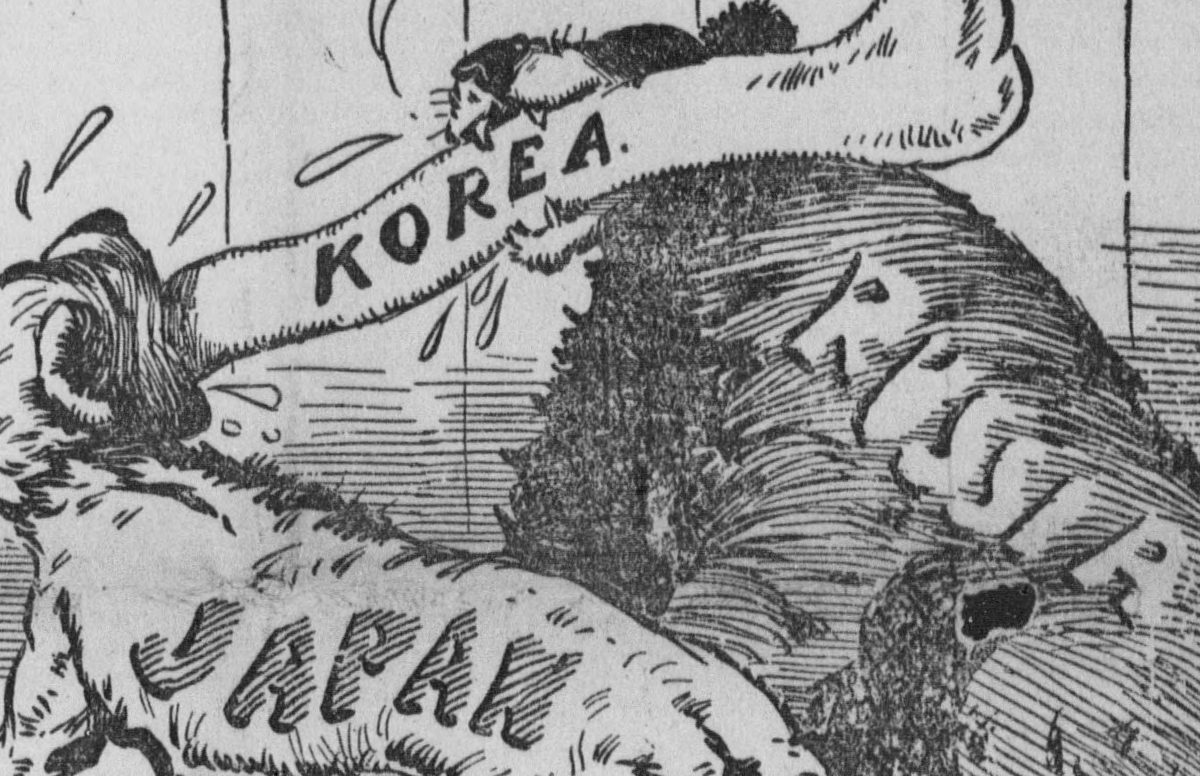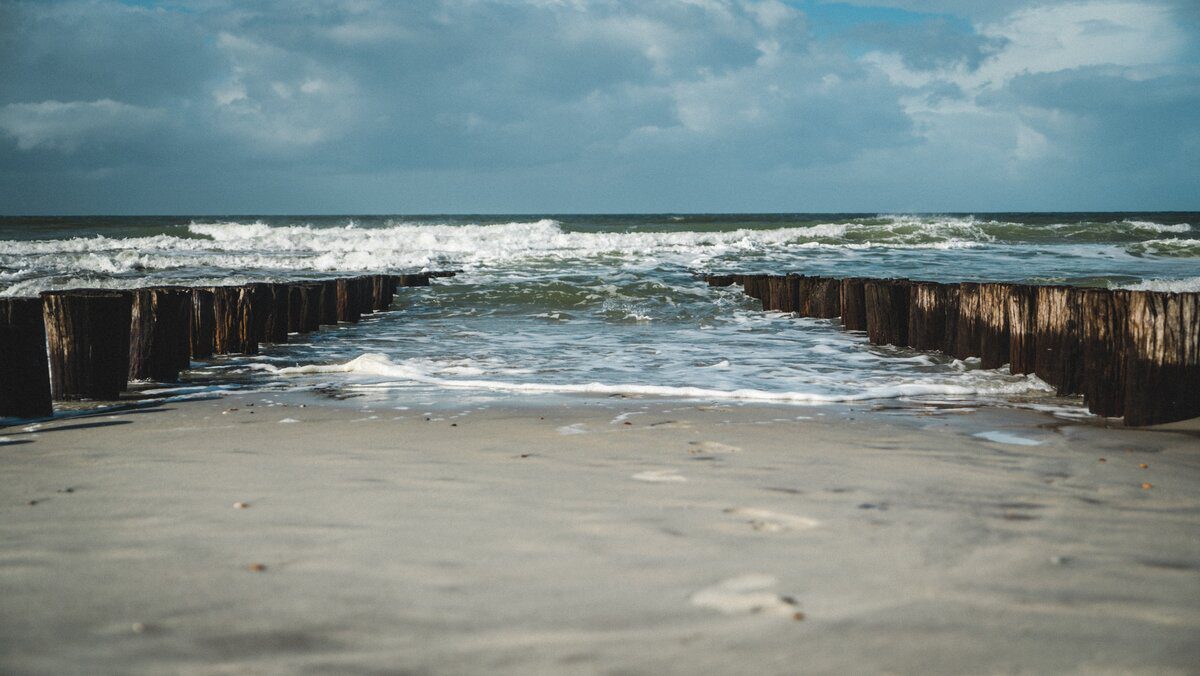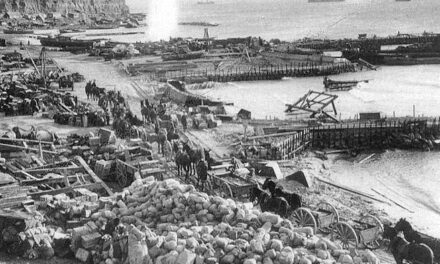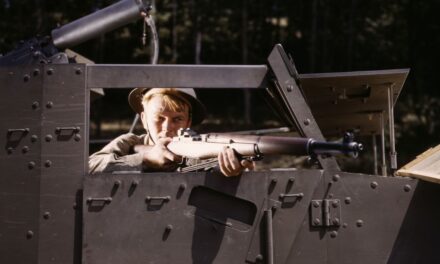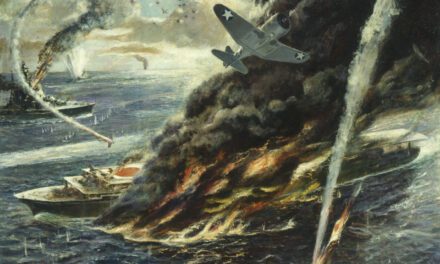Estimated reading time: 5 minutes
The Russo-Japanese War resulted in one of Russia’s greatest military upsets, and one of Japan’s most significant military victories, in modern history.
By Madison Moulton
At odds over imperial ambitions in Asia, a recently modernized Japan declared war on Russia in 1904, sparking a year-long conflict that set the stage for the century of war that followed. The advanced weapons used, the level of brutality, and the issues the powers fought over have led some historians to label this war ‘World War Zero’.
The Rise of Japan
Following the Meiji Restoration – the restoration of imperial rule to Japan in the 1860s after a period of civil war and political instability – the Meiji government promised to protect Japan from colonization and foreign domination. The country underwent a massive modernization and industrialization project that facilitated advances in technology, bolstered the military, and changed the social structure of society. The Restoration was an attempt to advance the newly unified country and become a recognized global power equal to its Western counterparts.
The Japanese demonstrated their improved military strategy in the Sino-Japanese War from 1894 to 1895. Pursuing imperial ambitions in the region, the Empire of Japan and the Qing Dynasty went to war over territory in Korea. After a series of losses, China signed the Treaty of Shimonosek that forced the Qing Dynasty to pay war reparations to Japan and allow access to ports for foreign trade. The strengths of the Japanese military were proven, and the power in East Asia shifted from China to Japan at the end of the 19th century.
Russian Expansionism
Like Japan at the end of the century, Russia was interested in territory in the East Asia region. After the Sino-Japanese war, Russia occupied Port Arthur in the Liaodong Peninsula, China for use as a warm water trading port. To aid transportation of goods to the port, the government began construction of the Chinese Eastern Railway in Manchuria, and although it was still officially a Chinese territory, the Russians exerted significant influence in the area. In 1900, after sending assistance to quell the Boxer Rebellion, Russian soldiers settled in Manchuria and did not follow through on their promise to vacate the area, strengthening their position.
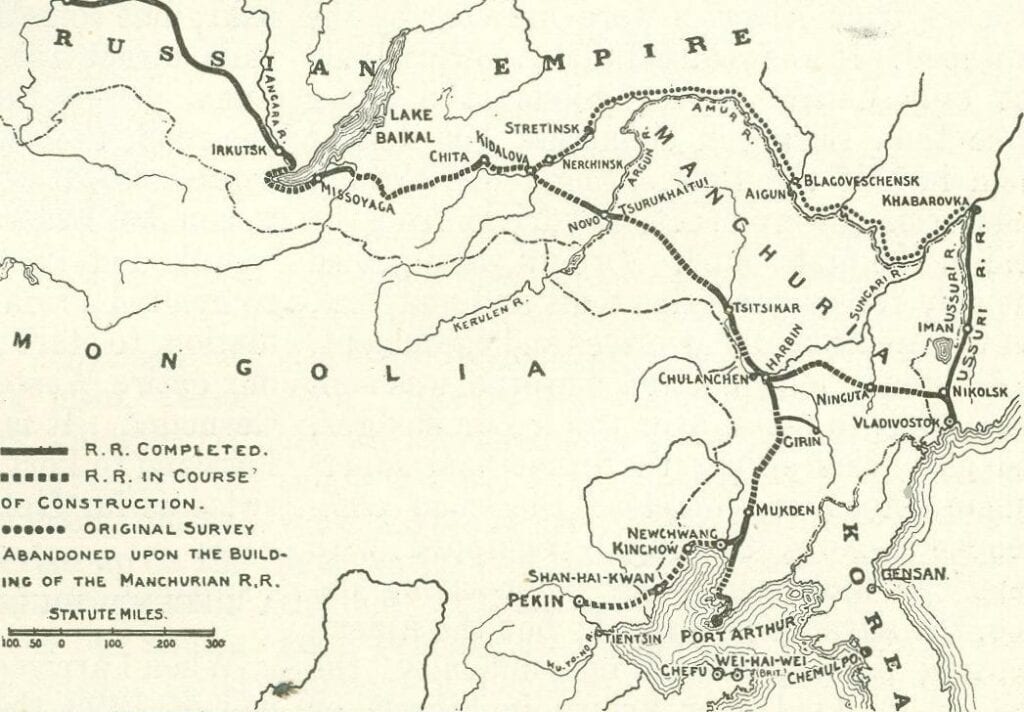
The Japanese viewed the acquisition of Port Arthur and the occupation of Manchuria as a threat to their imperial ambitions. Diplomatic negotiations over territory began – Japan proposed to recognize Russian interests in Manchuria in return for the recognition of Japanese interests in Korea. After the Japanese received no response to their proposal and Tsar Nicholas II showed little interest in resolution, negotiations broke down and both parties prepared for war.
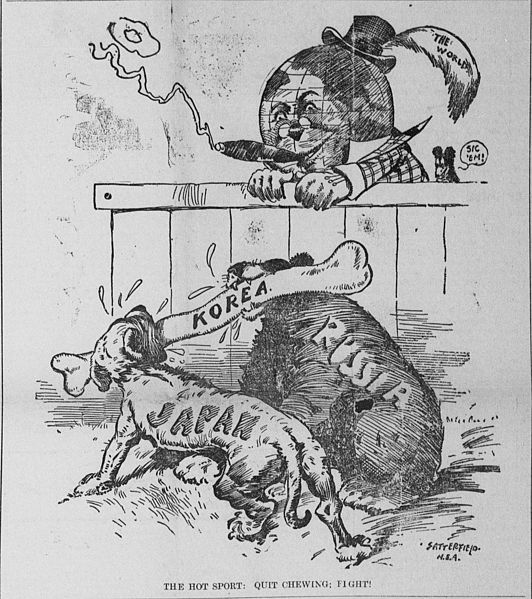
The Declaration of War
On February 8th, 1904, the Japanese navy launched a surprise attack on the Russians at Port Arthur, declaring war three hours later. The surprise attack shocked the Russians, who did not believe the Japanese would declare war on a large military power. The success of the attack also shocked the rest of the world, who did not believe an Asian power could defeat a European power in battle. These beliefs stemmed from the racial prejudices of the major European powers against East Asian nations, encouraging Russia to go to war to save the country from the ‘Yellow Peril’ and creating the impression that the Japanese could never defeat the ‘superior’ Russian military.
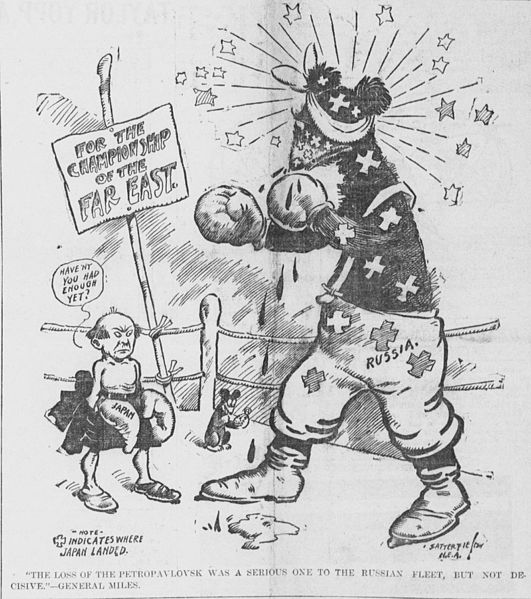
The Russians and the rest of the world were quickly proven wrong. Embarrassing defeats in the Siege of Port Arthur, the Battle of Mukden, and finally the Battle of Tsushima forced the Russians to sue for peace and signaled one of the greatest Japanese military victories in modern history. Russia was forced to leave Manchuria, recognize Japanese influence over Korea, and sign over rights to Port Arthur. Following the Peace Conference, Japan’s global status rose, and it became one of the major powers in Asia and across the world.
The Consequences of ‘World War Zero’
In the years after the Russo-Japanese war, the balance of power in Asia shifted. The first modern defeat of a European power by an Asian power challenged global prejudices and contributed to the Japanese goal of equality with Western powers. With newfound confidence, Japanese imperial ambitions and aggression in international relations were strengthened, leading to the Second Sino-Japanese War and the country’s prominent involvement as an Axis power in World War II.
While the Japanese rose in prestige, Russia’s costly defeat reduced their global reputation as a leading territorial power. The military embarrassment was viewed as a failure of Romanov rule – a significant motivator for the 1905 Russian Revolution. Although Tsar Nicholas quelled unrest in 1905, the negative image of the ruling family continued beyond the start of World War I to the Russian Revolution of 1917 – one of the most significant revolutions of the 20th century.
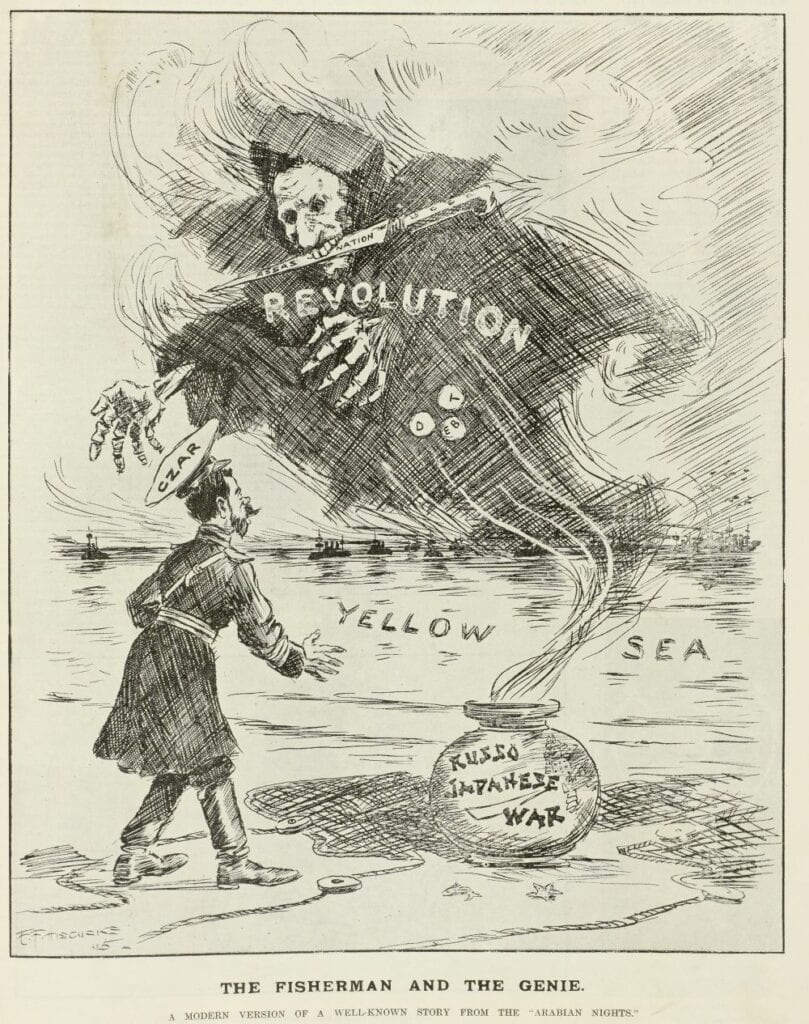
Historians labeled the Russo-Japanese war ‘World War Zero’ for both the conduct of the war and its influence over the events the followed ten years later. In many ways, the Russo-Japanese war defined military conduct for the rest of the century and significantly changed global international relations in the years that followed.
Articles you may also like
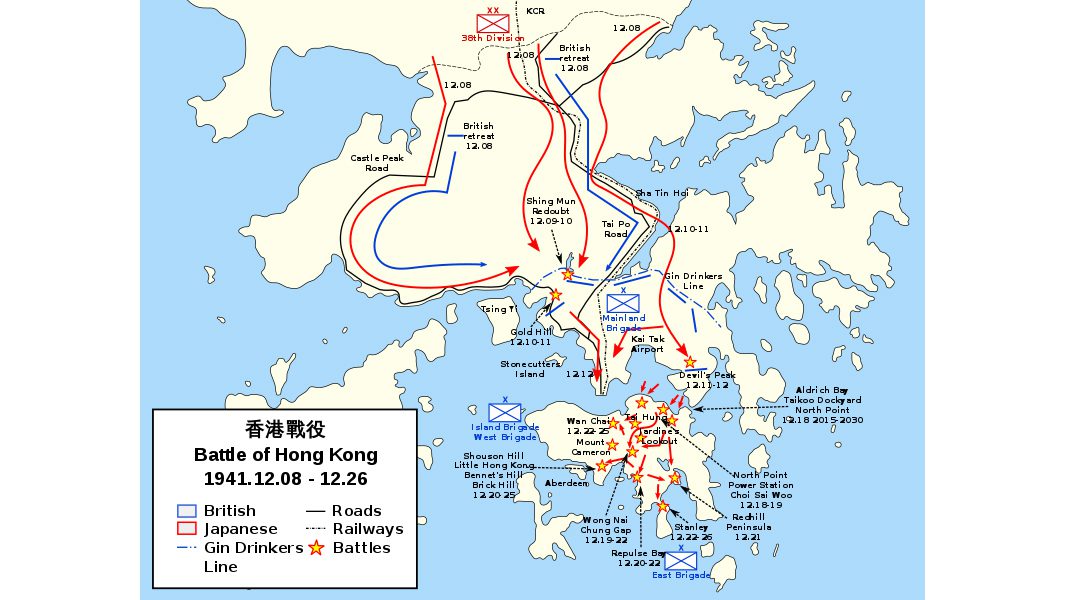
The Battle for Hong Kong – London’s Lost Cause?
Within 12 hours of Pearl Harbour being bombed by the Japanese at the outset of their entry to World War 2, they began their invasion of the British Territory of Hong Kong on the 7th December 1941. The British didn’t just roll over as is assumed but instead followed Prime Minister Winston Churchill’s command – […]
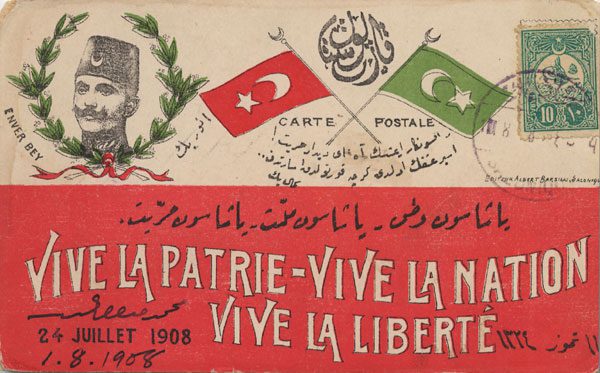
A Period of Change: Global Events in the Lead Up to WWI
The history of the lead up to WWI is undoubtedly dominated by Europe. European powers understandably take centre stage, given their influence on the start of the Great War. However, the years before WWI were a period of change – not just in Europe – but all over the world. Revolutions, wars, and political upheaval […]

